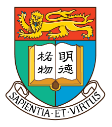The University of Hong Kong and the School of Humanities are committed to creating, promoting and maintaining an environment for staff and students which provides equality of opportunity and is free of any discrimination or harassment.
These Guidelines on the Use of Inclusive Language in Student Work aim to encourage students to be aware of the ways in which the use of language can marginalise, demean, and exclude social groups such as women, sexual minorities, ethnic groups, persons with physical or psychosocial disabilities, etc. This often occurs through unconscious bias and lack of awareness of the implications of the language we use. These guidelines aim to increase awareness of these issues and to encourage a more thoughtful and respectful use of language.
To further these aims, the School of Humanities encourages all students to adopt the principles of inclusive language in their academic work, whether written or spoken.
Inclusive language helps to reduce discrimination by promoting a balanced and considerate engagement with social diversity. It avoids words and phrases that stereotype, marginalise and demean social groups.
General Principles:
When engaging in writing, discussing, and making oral presentations, students should bear these general principles in mind:
- Think about the fact that you are addressing a diverse audience
- Be mindful and considerate of others, particularly those in different life circumstances to your own
- Question established language structures that may be discriminatory
- Listen and adhere to individuals’ or groups' preferences on how they wish to be spoken about
Examples:
* When speaking of people generally, use person-centric language (ensure groups, especially gender groups, are not inadvertently rendered invisible):
Consider using:
‘Students must work hard if they wish to get good grades’ instead of ‘A student must work hard if he wishes to get good grades’; ‘Human’ or ‘Humankind’ instead of ‘Man’ or ‘Mankind’; ‘Chairperson’, ‘Firefighter’ and ‘Police officer’ instead of ‘Chairman’, ‘Fireman’ and ‘Policeman’.
* Be aware of dominant word hierarchies, and try to avoid them. For instance, vary word-pair orders:
Consider using:
‘Women and men’ instead of ‘Men and women’; ‘Old and young’ instead of ‘Young and old’;
* When it is relevant to identify a group, address all its members:
Consider using:
‘Hong Kong people speak a variety of languages’ instead of ‘Hong Kong people speak Cantonese’;
‘Busy CEOs must find time for their spouses’ instead of ‘Busy CEOs must find time for their wives’.
* Use respectful terms to describe groups of people (avoid derogatory or outdated terms):
Avoid terms such as ‘locusts’; ‘ethnics’; ‘the handicapped’; ‘maids’, etc.
* Be aware of the ways individuals and groups prefer to be spoken about:
Use a person’s preferred gender pronoun (ask if unsure) and preferred honorific (e.g. ‘Ms.’ or ‘Mrs’);
Use preferred surnames (note a woman may keep her surname after marriage);
Whenever possible, reproduce the spelling and cultural nuances of an individual’s given and family names accurately (e.g. ‘Ms. Pérez Rivera’ instead of ‘Ms. Perez Rivera’).
* Use a diverse range of examples, case studies and illustrations relevant to your discussion and assume a diverse audience:
Portray both men and women in a variety of roles;
Discuss same-sex partnerships as well as heterosexual partnerships;
Use examples of people from a range of cultural and ethnic backgrounds.
[School of Humanities, April 2017]



